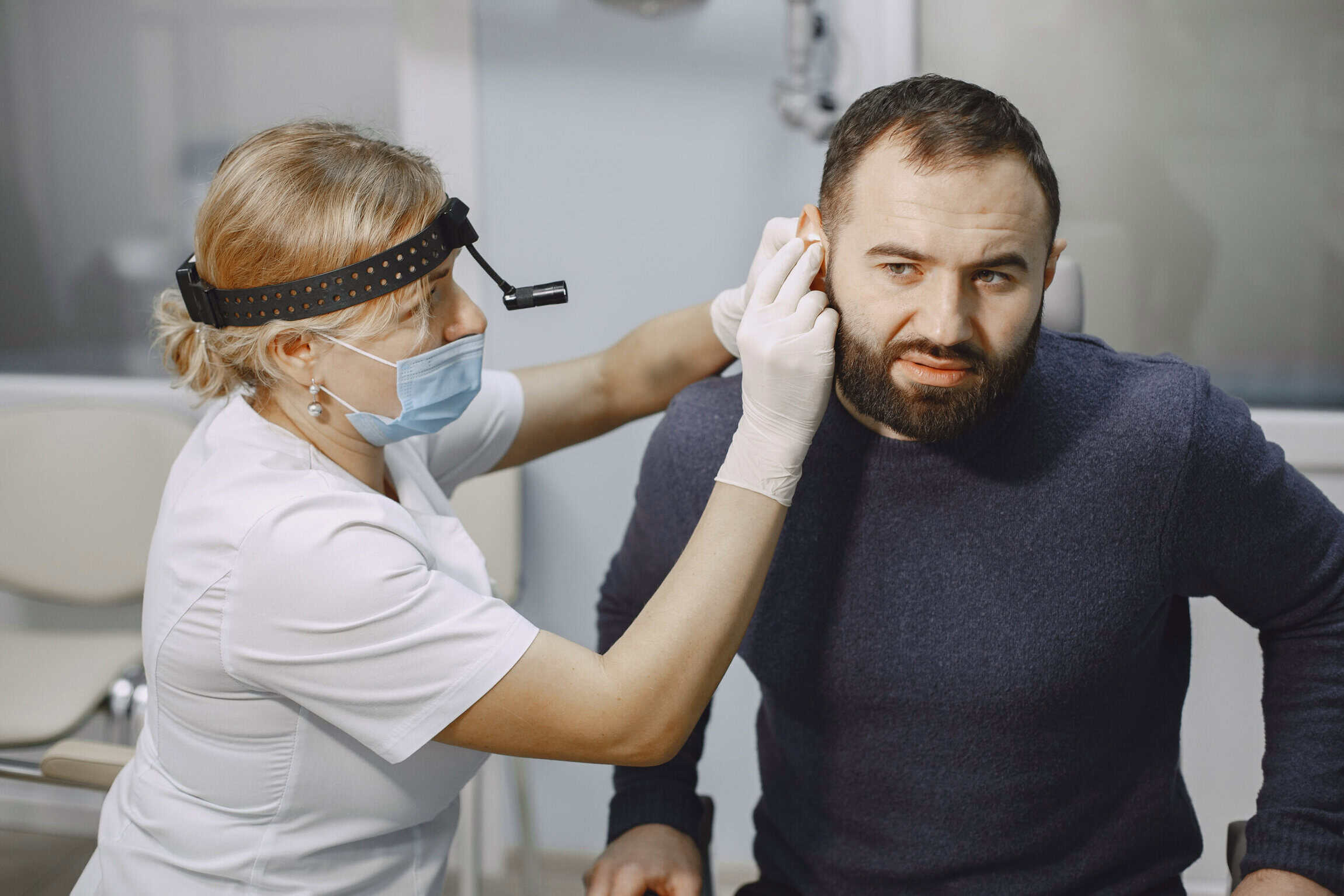According to a recent study, one car crash occurs every 4.3 minutes in Virginia. This means that countless parties are injured in automotive accidents on Virginia roads each year, often resulting in a range of accident injuries and complications.
In the majority of cases, the injured parties will be able to recover compensation from the person found to be at fault. However, understanding some of the most common injuries from auto accidents means that you’re able to understand whether or not you have a case.
Auto Accidents in Virginia: The Statistics
According to a report from the Virginia Department of Motor Vehicles, motor vehicle accidents result in an average of 163 injuries every day in Virginia.
- Each year, there are approximately 122,434 accidents on Virginia roads.
- Speeding and disobeying traffic laws are the leading causes of car accidents, followed closely by distracted driving and drunk driving.
Top 5 Most Common Car Accident Injuries
Whether you’re behind the wheel, a passenger, or a pedestrian, a wide variety of injuries can occur during a collision. However, according to various studies, the most common car accident injuries include:
- Head and neck injuries such as whiplash, concussion, and skull/neck fractures
- Back and spine injuries including herniated discs, spinal fractures, and spondylolisthesis
- Chest and abdominal injuries like fractured ribs/sternum, hemothorax, and pneumothorax
- Bone fractures involving arms/wrists, femur, and ribs
- Soft tissue injuries including bruising, cuts, and scrapes
Head and Neck Injuries
Whiplash
Whiplash injuries, otherwise referred to as neck strain, is an incredibly common injury among those involved in collisions. Typically, those involved in a head-on or rear-end collision and it is caused by the sudden back-and-forth movement of the neck. Common whiplash symptoms include neck pain and stiffness, a loss of motion, and headaches.
Concussion
Car accidents are one of the key causes of traumatic brain injuries (such as concussions) in the US. Similar to whiplash, it is caused by the sudden jolting of the head or neck area, which causes trauma in the brain. Common symptoms of a concussion include disorientation, dizziness, and nausea.
Skull/Neck fractures
Skull/neck fractures are also common in automotive accidents and are often the product of blunt force trauma. Common symptoms of skull/neck fractures include swelling, discomfort, and disorientation.
Facial Injuries
Facial injuries are common in car accidents and can range from minor cuts and bruises to severe injuries like broken bones, lacerations, and disfigurement. These injuries can be caused by airbag deployment, shattered glass, or impact with the steering wheel or dashboard.
Common symptoms of facial injuries include cuts, broken bones (such as the nose, jaw, and cheekbones), disfigurement, difficulty breathing or swallowing, vision problems, and hearing issues like ringing in the ears.
Immediate medical attention is crucial to prevent long-term damage from facial injuries sustained in a car accident.
Traumatic Brain Injury
Traumatic brain injury (TBI) occurs when the brain is damaged due to a blow or jolt to the head, often resulting from car accidents. TBI can range from mild to severe and can have long-lasting effects on the injured person.
Symptoms of TBI include confusion, memory loss, difficulty concentrating, mood changes, sleep disturbances, headaches, nausea, dizziness, blurred vision, and hearing problems.
TBI requires prompt medical attention to diagnose the injury and prevent further complications. Early treatment can improve recovery outcomes and minimize long-term effects.
Back and Spine Injuries
Herniated discs
The impact of an auto accident can also lead to herniated disc injuries, which occur when the tissue between spinal bones (the disc) is pushed outward. Common symptoms of herniated discs include shooting pain in arms/legs, stiffness around the neck, and lower back pain.
Spinal cord injuries
Over a third of spinal cord injuries, such as spinal fractures, in the US are the product of car accidents. Spinal fractures are caused when the backbone is dislocated, often due to blunt force or a sudden impact. Common symptoms of spinal fractures include paralysis or weakness in limbs, pain in the lower back, and numbness.
Spondylolisthesis
Spondylolisthesis occurs when one or more vertebrae (the bones that make up your spine) slip forward. Common symptoms of this condition include pain in your lower back, loss of motion, or a tingling sensation in your lower back or legs.
Chest and Abdominal Injuries
Broken ribs/sternum
Car accidents are the leading cause of both fractured ribs and fractured sternums in the US. Again, this injury is caused by the sudden impact of the accident. Common symptoms of both injuries include difficulty breathing, pain in the chest area, and bruising.
Hemothorax & pneumothorax
Hemothorax is a serious health complication in which blood pools in the space between the ribs and the lungs, known as the pleural space. Common symptoms include difficulty breathing, low blood pressure, and an increased heart rate.
A Pnemuotorax is quite similar; only this refers to the build-up of air/gas in the pleural space, which can lead to a collapsed lung.
Internal Injuries
Internal bleeding
Internal bleeding occurs when blood vessels are damaged, causing bleeding inside the body, often due to the force of a car accident. Symptoms can range from mild to severe and may not always be immediately apparent.
Common symptoms include abdominal pain or tenderness, difficulty breathing, chest pain, rapid heartbeat, dizziness, nausea, and blood in the urine or stool.
It’s crucial to seek immediate medical attention, as internal bleeding can lead to severe complications if left untreated.
Organ damage
Organ damage occurs when internal organs, such as the liver, spleen, or kidneys, are injured in a car accident. This type of injury can range from mild bruising to severe trauma, requiring immediate medical intervention.
Symptoms of organ damage include abdominal pain, shortness of breath, chest pressure, rapid heartbeat, and swelling. In severe cases, organ damage can cause internal bleeding or organ failure.
Early diagnosis and treatment are essential to prevent further complications and ensure proper healing.
Bone Fractures
As outlined above, skull, neck, rib, and sternum fractures are incredibly common in the wake of an automotive accident. However, they are not the only kind of fractures that could occur.
Arm/wrist fractures
Arm or wrist fractures are most common among drivers gripping the wheel when the accident takes place. Common symptoms include swelling, tenderness in the affected area, and bruising.
Femur fractures
According to various studies, motor accidents are the number one cause of femur fractures/injuries. Common symptoms include a loss of motion, difficulty walking, and swelling.
Soft Tissue Injuries
Most automotive accident victims will experience minor soft tissue injuries, such as cuts, scrapes, and bruising, which are common car accident injuries that often do not require additional medical attention.
Psychological Injuries
Auto accidents can also lead to emotional trauma, including post traumatic stress disorder (PTSD). Studies show that survivors often report high rates of PTSD (35.5%) and depression (20.0%).
Work With a Virginia Auto Accident Attorney For Your Case
When you’ve been seriously injured in a car accident caused by someone else’s negligence, you deserve full compensation for your injuries, and a car accident lawyer can help you achieve that. At Renfro & Renfro, our dedicated Virginia auto accident lawyers are committed to helping you secure the financial recovery you deserve. With offices in Richmond and Fredericksburg, we proudly serve clients across the metro area and throughout the Commonwealth of Virginia.
We understand the toll that an accident takes on your personal and professional life, and we take on the legal burdens so you can focus on healing. Our experienced team works diligently to build strong cases for our clients, providing clear communication and a responsive approach at every step. You can trust that your legal interests are fully protected, whether through settlement negotiations or aggressive courtroom representation.
Virginia’s strict contributory negligence laws make it crucial to have an experienced lawyer evaluate and handle your case. If you are even 1% at fault, you may be barred from recovering damages, making it vital to have skilled representation. Our team specializes in navigating these complexities and will fight to ensure you receive the compensation you’re entitled to.
Free Case Evaluation from Renfro & Renfro
If you’ve been injured in a car accident in Virginia, our experienced attorneys are here to help. We offer free case evaluations to assess your claim and guide you through the legal process.
With offices conveniently located in Richmond and Fredericksburg, Renfro & Renfro is ready to serve clients throughout Virginia. Contact us today to schedule a consultation and let us help you get the compensation you deserve.






